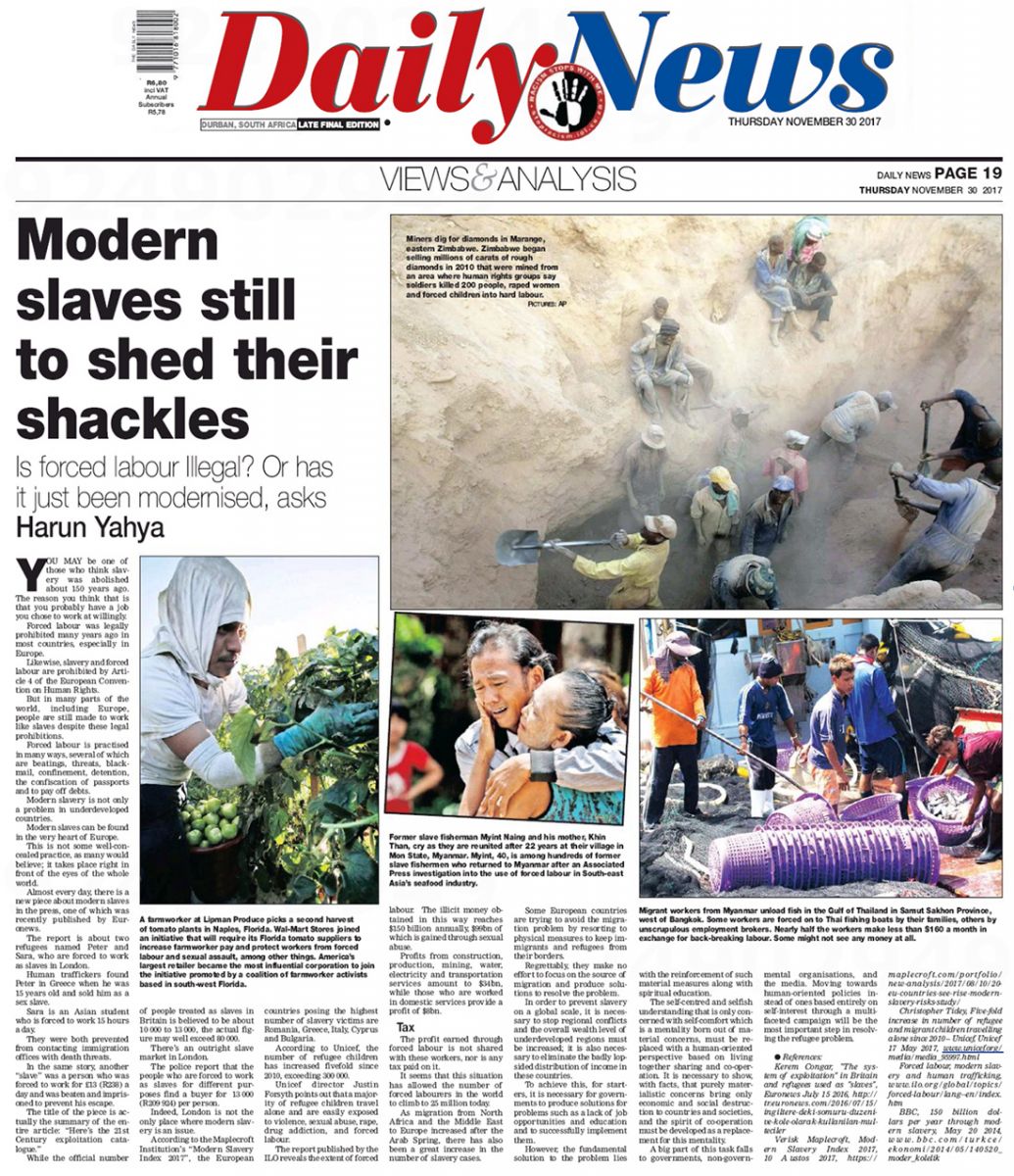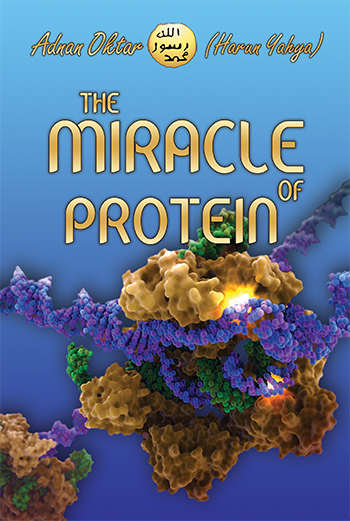Bigotry: The Dark Danger
Modern slaves still to shed their shackles

You may be one of those who think slavery was abolished around 150 years ago. The reason you think that is that you probably have a regular job that you chose to work at willingly.
Forced labor was legally prohibited many years ago in most countries of the world, especially in Europe. Likewise, in Article 4 of the European Convention on Human Rights, slavery and forced labor are also prohibited.
But in many parts of the world, including Europe, people are still made to work like slaves despite these legal prohibitions. Forced labor is practiced in many ways, several of which are beatings, threats, blackmail, confinement, detainment, the confiscation of passports and to pay off debts.
Modern slavery is not only a problem in underdeveloped countries as many may think. Modern slaves can be found in the very heart of Europe. This is not some well-concealed practice as many would believe; it takes place right in front of the eyes of the whole world. Almost every day, there is a new piece about modern slaves in the press, one of which was recently published by Euronews.
The report is about two refugees named Peter and Sara, who are forced to work as slaves in London. Human traffickers found Peter in Greece when he was 15 years old and sold him as a sex slave; Sara is an Asian student who is forced to work 15 hours a day. They were both prevented from contacting immigration offices with death threats. In the same story, another ‘slave’ was a person who was forced to work for 13 pounds a day and was beaten and imprisoned to prevent his escape. The title of the piece is actually the summary of the entire article: "Here's the 21st Century exploitation catalog..." (1)
While the official number of people treated as slaves in Britain is believed to be around 10,000 to 13,000, the actual figure may well exceed 80,000. There's an outright slave market in London. The police reports that the people who are forced to work as slaves for different purposes find a buyer for 13,000 Euros per person.
Indeed, London is not the only place where ‘modern slavery’ is an issue. According to the Maplecroft Institution's "Modern Slavery Index 2017," the European countries posing the highest number of slavery victims are Romania, Greece, Italy, Cyprus and Bulgaria. (2)
According to UNICEF, the number of refugee children has increased fivefold since 2010, exceeding 300,000. UNICEF Director Justin Forsyth points out that a majority of refugee children travel alone and are easily exposed to violence, sexual abuse, rape, drug addiction, and forced labor. (3)
The number of modern slaves in the Far East is far greater than in Europe. Bangladesh, China, India, Indonesia, Malaysia, Myanmar, the Philippines and Thailand are the countries where modern slavery is the most prevalent. According to the International Labor Organization, 40.3 million people are forced to work as slaves; about 25 million of them are subjected to coercion and violence. (4)
The report published by the ILO reveals the extent of forced labor. The illicit money obtained in this way reaches $150 billion dollars annually, $99 billion dollars of which is gained through sexual abuse. Profits from construction, production, mining, water, electricity and transportation services amount to $34 billion dollars, while those who are worked in domestic services provide a profit of $8 billion dollars. The profit earned through forced labor is not shared with these workers, nor is any tax paid with it. It seems that this situation has allowed the number of forced laborers in the world to climb to 25 million today. (5)
As migration from North Africa and the Middle East to Europe increased after the Arab Spring, there has also been a great increase in the number of slavery cases. Some European countries are trying to avoid the migration problem by resorting to physical measures to keep immigrants and refugees from their borders. Regrettably, they make no effort to focus on the source of migration and produce solutions to resolve the problem.
In order to prevent slavery on a global scale, it is necessary to stop regional conflicts and the overall wealth level of underdeveloped regions must be increased; it is also necessary to eliminate the badly lopsided distribution of income in these countries. To achieve this, for starters, it is necessary for governments to produce solutions for problems such as a lack of job opportunities and education, and to successfully implement them.
However, the fundamental solution to the problem lies with the reinforcement of such material measures along with spiritual education. The self-centered and selfish understanding that is only concerned with self-comfort which is a mentality born out of material concerns, must be replaced with a human-oriented perspective based on living together sharing and cooperation. It is necessary to show, with facts, that purely materialistic concerns bring only economic and social destruction to countries and societies, and the spirit of cooperation must be developed as a replacement for this mentality. A big part of this task falls to governments, non-governmental organizations, and the media. Moving towards human-oriented policies instead of ones based entirely on self-interest through a multifaceted campaign will be the most important step in resolving the refugee problem.
References:
- Kerem Congar, 'The system of exploitation' in Britain and refugees used as 'slaves', Euronews July 15 2016, http://tr.euronews.com/2016/07/15/ingiltere-deki-somuru-duzeni-ve-kole-olarak-kullanilan-multeciler
- Verisk Maplecroft, Modern Slavery Index 2017, 10 Ağustos 2017, https://maplecroft.com/portfolio/new-analysis/2017/08/10/20-eu-countries-see-rise-modern-slavery-risks-study/
- Christopher Tidey, Five-fold increase in number of refugee and migrant children traveling alone since 2010 – UNICEF, UNICEF 17 May 2017, https://www.unicef.org/media/media_95997.html
- Forced labour, modern slavery and human trafficking, http://www.ilo.org/global/topics/forced-labour/lang--en/index.htm
- BBC, 150 billion dollars per year through modern slavery, May 20 2014, http://www.bbc.com/turkce/ekonomi/2014/05/140520_moder_kolelik
Adnan Oktar's piece in Daily News (South Africa)
2017-12-09 00:47:20






